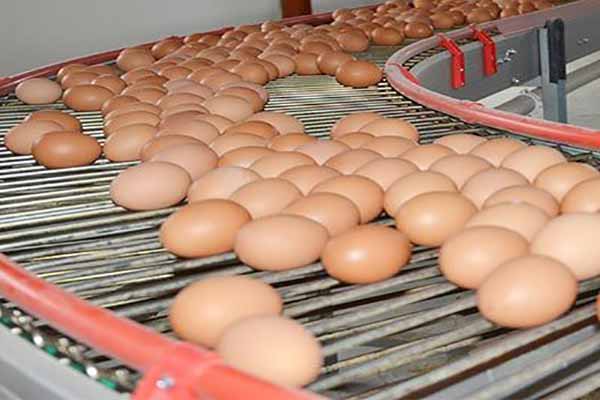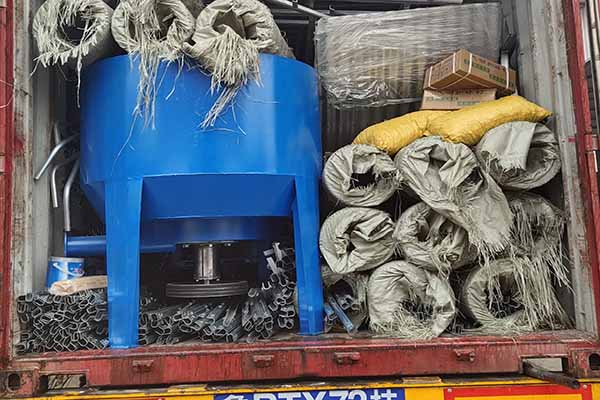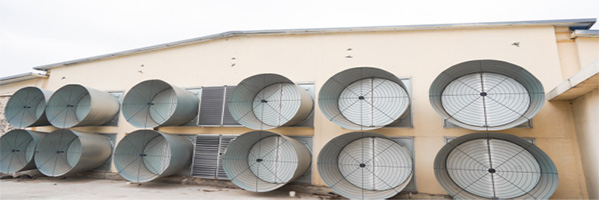Selection Guide for Kenyan Environmental Control Equipment
Time : 2025-06-26
Environmental control equipment is crucial for maintaining the optimal conditions for agriculture, livestock farming, and other industrial processes in Kenya. The selection of the right equipment is vital for the efficiency and success of any operation. This guide aims to provide professionals in Kenya with the essential information needed to make informed decisions when selecting environmental control equipment.
Understanding Environmental Control Equipment
Environmental control equipment refers to various devices and systems used to regulate and monitor environmental conditions such as temperature, humidity, air quality, and other factors. In Kenya, these systems are essential for maintaining the health and well-being of livestock, crops, and employees. The following are some of the key components of environmental control systems:
- Heating and Cooling Systems: These systems help regulate temperature, ensuring that the desired conditions are maintained year-round. In Kenya, where the climate varies significantly, these systems are essential for maintaining optimal conditions throughout the year.
- Humidity Control Systems: These systems help regulate humidity levels, which are critical for the growth and development of crops and livestock.
- Air Quality Control Systems: These systems help filter and purify the air, ensuring a healthy environment for both humans and animals.
- Monitoring Systems: These systems allow for real-time monitoring of environmental conditions, enabling quick responses to any deviations from the desired setpoints.
Factors to Consider When Selecting Environmental Control Equipment
Selecting the right environmental control equipment requires careful consideration of various factors to ensure optimal performance and efficiency. The following are some of the key factors to consider:
1. Application
The specific application of the environmental control equipment is a critical factor to consider. For example, a dairy farm may require a different type of system compared to a poultry farm or a greenhouse. It is essential to understand the specific needs of your operation to select the appropriate equipment.
2. Size and Capacity
The size and capacity of the equipment should match the size of the facility and the number of animals or crops being managed. Over-sizing or under-sizing the equipment can lead to inefficient operation and increased energy consumption.
3. Energy Efficiency
Energy consumption is a significant factor to consider, especially in Kenya where energy costs can be high. Selecting energy-efficient equipment can lead to significant cost savings over time.
4. Reliability and Maintenance
The reliability of the equipment is crucial for maintaining continuous operation. Additionally, the maintenance requirements and costs should be considered to ensure that the equipment remains operational for the long term.
5. Local Climate and Environment
The local climate and environment can significantly impact the performance of environmental control equipment. It is essential to select equipment that is designed for the specific climate and environmental conditions in Kenya.

Top Environmental Control Equipment Options for Kenya
Based on the factors outlined above, the following are some of the top environmental control equipment options for Kenya:
1. Greenhouse Temperature Control Systems
Greenhouse temperature control systems are essential for maintaining optimal growing conditions for crops. These systems can include heating, cooling, and humidity control components, as well as monitoring systems for real-time data collection.
2. Livestock Farming Equipment
Livestock farming equipment, such as heating and cooling systems, humidity control systems, and air quality control systems, are essential for maintaining optimal conditions for livestock. These systems help ensure the health and well-being of the animals, leading to higher productivity and profitability.

3. Air Purification Systems
Air purification systems are crucial for maintaining a healthy environment in industrial and agricultural facilities. These systems can filter out harmful particles and gases, ensuring a safe and comfortable environment for both humans and animals.

4. Energy-Efficient HVAC Systems
Energy-efficient HVAC systems are essential for maintaining optimal indoor conditions in various facilities, including residential, commercial, and industrial buildings. These systems help reduce energy consumption and lower operating costs.
Conclusion
Selecting the right environmental control equipment is a crucial decision that can impact the efficiency and success of your operation in Kenya. By considering the specific needs of your operation, the factors outlined in this guide, and the top equipment options available, you can make an informed decision that will help maintain optimal conditions for your crops, livestock, and employees.











